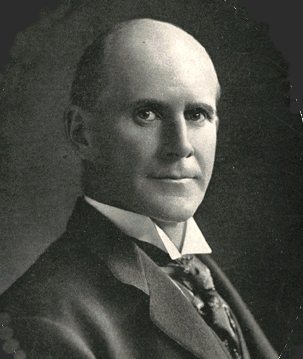The Socialist Party and the Working Class (1904)
Eugene V. Debs Quotes
Outlook for Socialism in the United States (1900)
The Canton, Ohio Speech, Anti-War Speech (1918)
"Statement to the Court Upon Being Convicted of Violating the Sedition Act" (18 September 1918) http://www.marxists.org/archive/debs/works/1918/court.htm
Federal Court statement (1918)
The Socialist Party and the Working Class (1904)
Jesus, the Supreme Leader (1914)
“I have no country to fight for; my country is the earth; I am a citizen of the world.”
"When I Shall Fight," Appeal to Reason (11 September 1915) https://socialistworker.org/2004-1/500/500_06_Zinn.php
The Issue (1908)
Working Class Politics (1910)
"The American Movement" http://www.marxists.org/archive/debs/works/1898/america.htm (written 1898, first published 1908)
Working Class Politics (1910)
The Socialist Party and the Working Class (1904)
The Socialist Party and the Working Class (1904)
Sound Socialist Tactics (1912)
Jesus, the Supreme Leader (1914)
The Socialist Party and the Working Class (1904)
"An Ideal Labor Press," The Metal Worker (May 1904)
Sound Socialist Tactics (1912)
The Canton, Ohio Speech, Anti-War Speech (1918)
The Socialist Party and the Working Class (1904)
The Socialist Party and the Working Class (1904)
“If ever I become entirely respectable I shall be quite sure that I have outlived myself.”
The Canton, Ohio Speech, Anti-War Speech (1918)
Sound Socialist Tactics (1912)
The Canton, Ohio Speech, Anti-War Speech (1918)
The Socialist Party and the Working Class (1904)
The Canton, Ohio Speech, Anti-War Speech (1918)
Jesus, the Supreme Leader (1914)
The Canton, Ohio Speech, Anti-War Speech (1918)
The Canton, Ohio Speech, Anti-War Speech (1918)
The Negro and His Nemesis (1904)
The Secret of Efficient Expression (1911)
Sound Socialist Tactics (1912)
The Negro and His Nemesis (1904)
The Socialist Party and the Working Class (1904)
Outlook for Socialism in the United States (1900)
Two Letters on Party Policy (1910)
"Industrial Unionism" (1905), Eugene Debs Speaks
"Industrial Unionism" (1905), Eugene Debs Speaks
"Industrial Unionism" (1905), Eugene Debs Speaks
